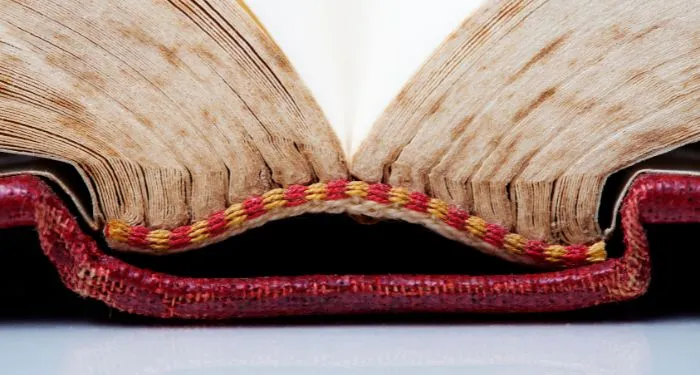
On Bonding With Damaged Books
I still remember vividly when a friend — who has always loved her books pristine — revealed to me that when she was younger she borrowed a book from the library in order to lend it to a friend. She owned a copy of the book, but she knew her friend well, and she didn’t trust them not to mess the book up irreversibly.
I laughed my heart out at this, because while it may sound like a bit of an overreaction, when you look at it closer, it is such a good compromise: I will do my very best to get this story in your hands, but I don’t trust those hands, so I’ll make sure we both get out of this unscathed (both the friendship and the books, of course).
As a teenager, I used to dog-ear my books as a way of bookmarking. I learned this by copying my mum, and it never occurred to me that it might be the wrong thing to do. In fact, it felt logical: you stop somewhere, you fold the top of the page so you can come back to it. There was no question about it.
I cannot recall when I stopped doing this: if I realised that doing that damaged the pages and I didn’t want the marks on my books, or if it was the influence of social media and all the “people who dog-ear books are monsters” that made me stop, but at some point I did settle on using bookmarks, and that’s still what I use to this day. What is perhaps curious is that I will dog-ear my books in order to take notes of passages I want to go back to, but I will still use bookmarks to save my page. Weird, I know.
In general, up until a few months ago, I kept my books pretty much neat. Before I started taking part in book clubs I didn’t even write in my books. Then, recently, my copy of Nightbitch got accidentally mangled inside my bag.
At first, when I saw the cover and a couple of pages folded in a massive dog-ear, I gasped. Damn, I should have paid more attention when I put the book inside my backpack. But as I got back into it and continued reading, I realised I started to gain a greater fondness for that mangled copy.
Nightbitch wasn’t just a book I was enjoying: it was a book I felt I had a history with, despite the fact that I don’t see myself in the story. No, it was not the take of motherhood that brought us close: it was the damage.
With the book broken like that, nothing more was at stake. I could just throw the book into my bag, crack the spine, it didn’t matter: the book’s condition was already ruined, and I was living for it.
When I picked up the next read, and then another, I started noticing a newly acquired recklessness. In secret, I wanted my books to get damaged, even though I didn’t want to purposely damage them.
Every single time a book eventually got broken in some way, and I could be carefree with it at last (I may or may not have broken a few spines on purpose), I felt more connected to it as an object. These books were now entirely mine, not like the thousands of pristine untouched copies out there, but a personalised copy of my own.
As I look at my bookcase these days, I come to the conclusion that the more damaged books are those I’ve read the most, those I’ve spent more time with, those which have travelled with me back and forth even when I lacked time to read. Those battered copies now give me comfort rather than distress me.
This is not to say I am just going around mindlessly damaging my copies on purpose, but I sure don’t get upset anymore when it accidentally happens. In fact, I feel some sort of relief most times: now we can finally get to know each other better without fears or inhibitions.
Does your relationship with books tend to change depending on their condition?
Here are the funniest and weirdest stories of damaged library books, and if you’re the type of reader who likes neat books, here’s how you can repair them.




